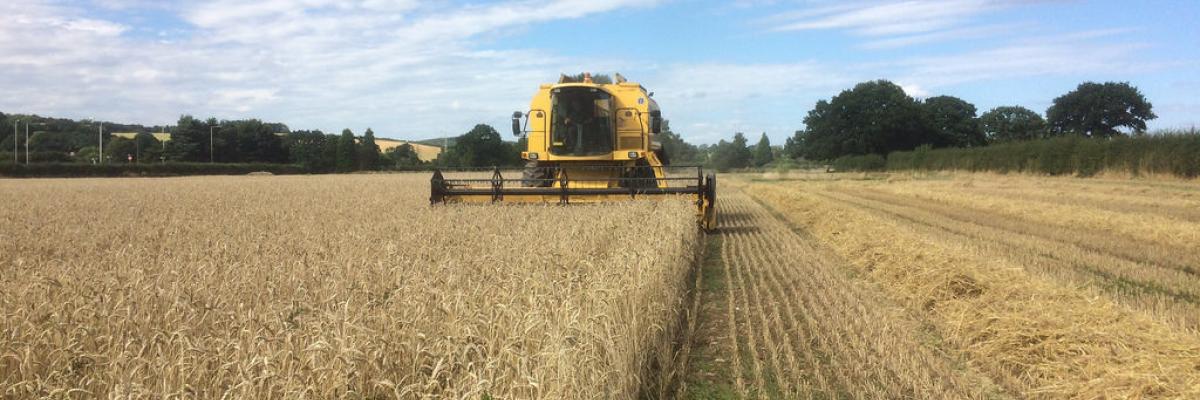

Launch of ORC Wakelyns Population
Watch the video
In this video presentation filmed at the OF&G's National Organic Combinable Crops (NOCC) in July 2015, Dr Bruce Pearce talks about Organic Research Centre (ORC) advances in developing wheat populations and describes the process since 2001 that has led up to the launch of the ORC Wakelyns Population. He emphasises the need to be able to feed ourselves, adapt to climate change, use energy more efficiently, protect biodiversity, and ensure farmers have control over farming systems. He talks about the need to focus on diversity within the Population on both a genetic and physical level in order to increase crop capacity and resilience. This makes it more able to thrive in different climatic conditions, benefiting farmers by producing stable yields of high quality and high nutritional value. He cites an example of how diverse populations can work, and describes the process of reaching the point of being able to market the new wheat population.
- Diversity can bring stability and increased productivity. These were the aims behind the development of this new wheat population.
- 20 different varieties of wheat were crossed to create a robust crop (a ‘population’ or ‘crowd’). Some varieties were more tolerant to disease than others, some more adaptable to various weather conditions, some were high yielding, others were of high nutritional quality.
- The diverse genetic mix in a population prevents a crop from failing under stresses such as drought or flooding.
- Trials conducted on farms across Europe have shown that the Population yields have greater stability than those of the original parent crops. Similarly, protein content and hardness has significantly increased. Baking quality is good, it is nutritious as the parents, and it is suitable for animal feed.
- Genetically, the Population has been found to retain its diversity in UK conditions, so it will not lose its ability to cope with the changing environment.
- The ORC has worked with policy makers to change the EU regulation for a ‘Distinct, Stable and Uniform’ seed. As a result, since March 2014, the marketing of certain non-uniform grain varieties is permitted on a trial basis until December 2018.
- Since the ORC Wakelyns Population was officially launched it is now on sale!
Also see 'Populations: diversity in plant breeding'
Find out more about the work of OF&G (and the NOCC) here.
(Photo credit: Mark Lea)
